
Napoleon Bonaparte, later known by his regnal name Napoleon I, was a French military commander and political leader who rose to prominence during the French Revolution and led successful campaigns during the Revolutionary Wars. He was the leader of the French Republic as First Consul from 1799 to 1804, then of the French Empire as Emperor of the French from 1804 until 1814 and briefly again in 1815. Napoleon's political and cultural legacy endures as a celebrated and controversial leader. He initiated many liberal reforms that have persisted, and is considered one of the greatest military commanders in history. His campaigns are still studied at military academies worldwide. Between three and six million civilians and soldiers died in the Napoleonic Wars.

Maurice Papon was a French civil servant who led the police in major prefectures from the 1930s to the 1960s, before he became a Gaullist politician. When he was secretary general for the police in Bordeaux during World War II, he participated in the deportation of more than 1,600 Jews. He is also known for his activities in the Algerian War (1954–1962), during which he tortured insurgent prisoners as prefect of the Constantinois department, and ordered, as prefect of the Paris police, the deadly repression of a pro-National Liberation Front (FLN) demonstration against a curfew that he had "advised."

Christian Johann Heinrich Heine ; born Harry Heine; 13 December 1797 – 17 February 1856) was a German poet, writer and literary critic. He is best known outside Germany for his early lyric poetry, which was set to music in the form of Lieder by composers such as Robert Schumann and Franz Schubert. Heine's later verse and prose are distinguished by their satirical wit and irony. He is considered a member of the Young Germany movement. His radical political views led to many of his works being banned by German authorities—which, however, only added to his fame. He spent the last 25 years of his life as an expatriate in Paris.

The Sanhedrin was an assembly of either 23 or 71 elders, appointed to sit as a tribunal in every city in the ancient Land of Israel.

Jean-Lambert Tallien was a French politician of the revolutionary period. Though initially an active agent of the Reign of Terror, he eventually clashed with its leader, Maximilien Robespierre, and is best known as one of the key figures of the Thermidorian Reaction that led to the fall of Robespierre and the end of the Terror.

Louis-Mathieu Molé, also 1st Count Molé from 1809 to 1815, was a French statesman, close friend and associate of Louis Philippe I, King of the French during the July Monarchy (1830–1848).

Antoine Jacques Claude Joseph, comte Boulay de la Meurthe, was a French politician and magistrate.
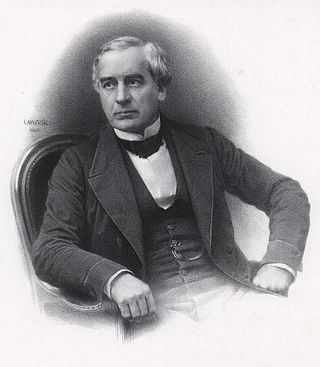
Jules Barthélemy-Saint-Hilaire was a French philosopher, journalist, statesman, and possible illegitimate son of Napoleon I of France.

Alexandre Kojève was a Russian-born French philosopher and statesman whose philosophical seminars had an immense influence on 20th-century French philosophy, particularly via his integration of Hegelian concepts into twentieth-century continental philosophy. As a statesman in the French government, he was instrumental in the formation of the European Union.

Comte Pierre Louis Roederer was a French politician, economist, and historian, politically active in the era of the French Revolution and First French Republic. Roederer's son, Baron Antoine Marie Roederer (1782–1865), also became a noted political figure.

The first laws to emancipate Jews in France were enacted during the French Revolution, establishing them as citizens equal to other Frenchmen. In countries that Napoleon Bonaparte's ensuing Consulate and French Empire conquered during the Napoleonic Wars, he emancipated the Jews and introduced other ideas of freedom from the French Revolution. For instance, he overrode old laws restricting Jews to reside in ghettos, as well as lifting laws that limited Jews' rights to property, worship, and certain occupations.

The history of the Jews in France deals with Jews and Jewish communities in France since at least the Early Middle Ages. France was a centre of Jewish learning in the Middle Ages, but persecution increased over time, including multiple expulsions and returns. During the French Revolution in the late 18th century, on the other hand, France was the first European country to emancipate its Jewish population. Antisemitism still occurred in cycles and reached a high in the 1890s, as shown during the Dreyfus affair, and in the 1940s, under Nazi occupation and the Vichy regime.
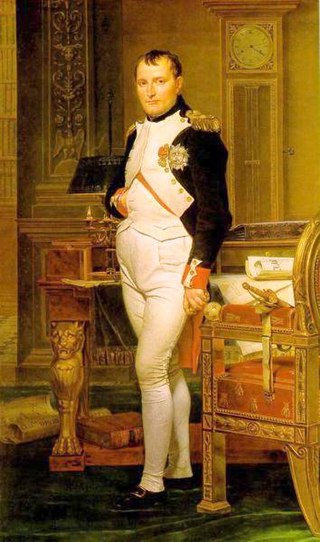
On March 17, 1808, Napoleon made three decrees in a failed attempt to promote the equality of Jews and integrate them into French society, building on the Jewish Emancipation of 1790–1791. The Infamous Decree, the third of the three decrees, had adverse effects. Although its aim was to grant equal citizenship, it restricted Jewish money lending, annulled all debts owed to Jews by married women, minors and soldiers, voided any loan that had interest rates exceeding 10 percent, and limited the residency of new Jewish peoples in France by restricting their business activities, while allowing work in agriculture and craftsmanship. The combination of these decrees severely weakened the financial position of once dominant rural French money lending Jews.
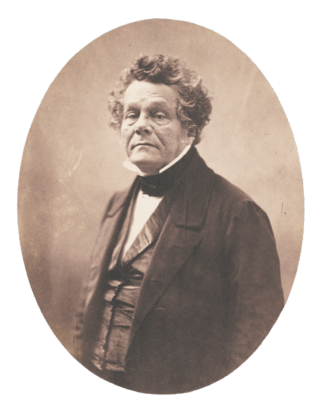
Isaac-Jacob Adolphe Crémieux was a French lawyer and politician who served as Minister of Justice under the Second Republic (1848) and Government of National Defense (1870–1871). Raised Jewish, he served as president of the Alliance Israélite Universelle, secured French citizenship for Algerian Jews under French rule through the Crémieux Decree (1870), and was a staunch defender of the rights of the Jews of France.
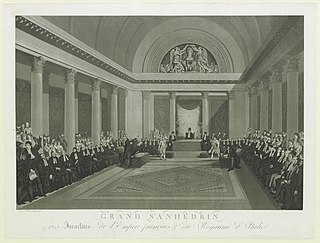
The Grand Sanhedrin was a Jewish high court convened in Europe by Napoleon to give legal sanction to the principles expressed by an assembly of Jewish notables in answer to the twelve questions submitted to it by the government. The name was chosen to imply that the Grand Sanhedrin had the authority of the original Sanhedrin that had been the main legislative and judicial body of the Jewish people in classical antiquity and late antiquity.
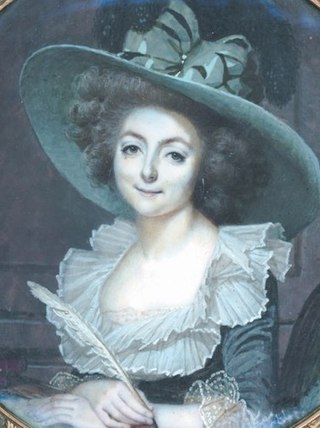
Sophie de Condorcet, also known as Sophie de Grouchy and best known as Madame de Condorcet, was a prominent French salon hostess from 1789 to the Reign of Terror, and again from 1799 until her death in 1822. She was also a philosopher and the wife of the mathematician and philosopher Nicolas de Condorcet, who died during the Reign of Terror. Despite his death and the exile of her brother, Marshal Emmanuel de Grouchy, between 1815 and 1821, she maintained her own identity and was well-connected and influential before, during, and after the French Revolution.
A Jewish consistory, , was a body governing the Jewish congregations of a province or of a country; also the district administered by the consistory.

Jacob (Jacques) Presser was a Dutch historian, writer and poet who is known for his book Ashes in the Wind on the history of the persecution of the Jews in the Netherlands during World War II. Presser made a significant contribution to Dutch historical scholarship, as well as to European historical scholarship.

Cécile Furtado-Heine, born Cécile Charlotte Furtado, was a French philanthropist. She was born in Paris on March 6, 1821 and died on December 10, 1896.
Joseph Antignac, was a French soldier and businessman who served as Commissioner-General for Jewish Affair under the Vichy government between May and August 1944.
Szajkowski, Zosa. “The Sephardic Jews of France during the Revolution of 1789.” Proceedings of the American Academy for Jewish Research 24 (1955): 137–64. https://doi.org/10.2307/3622255.


















